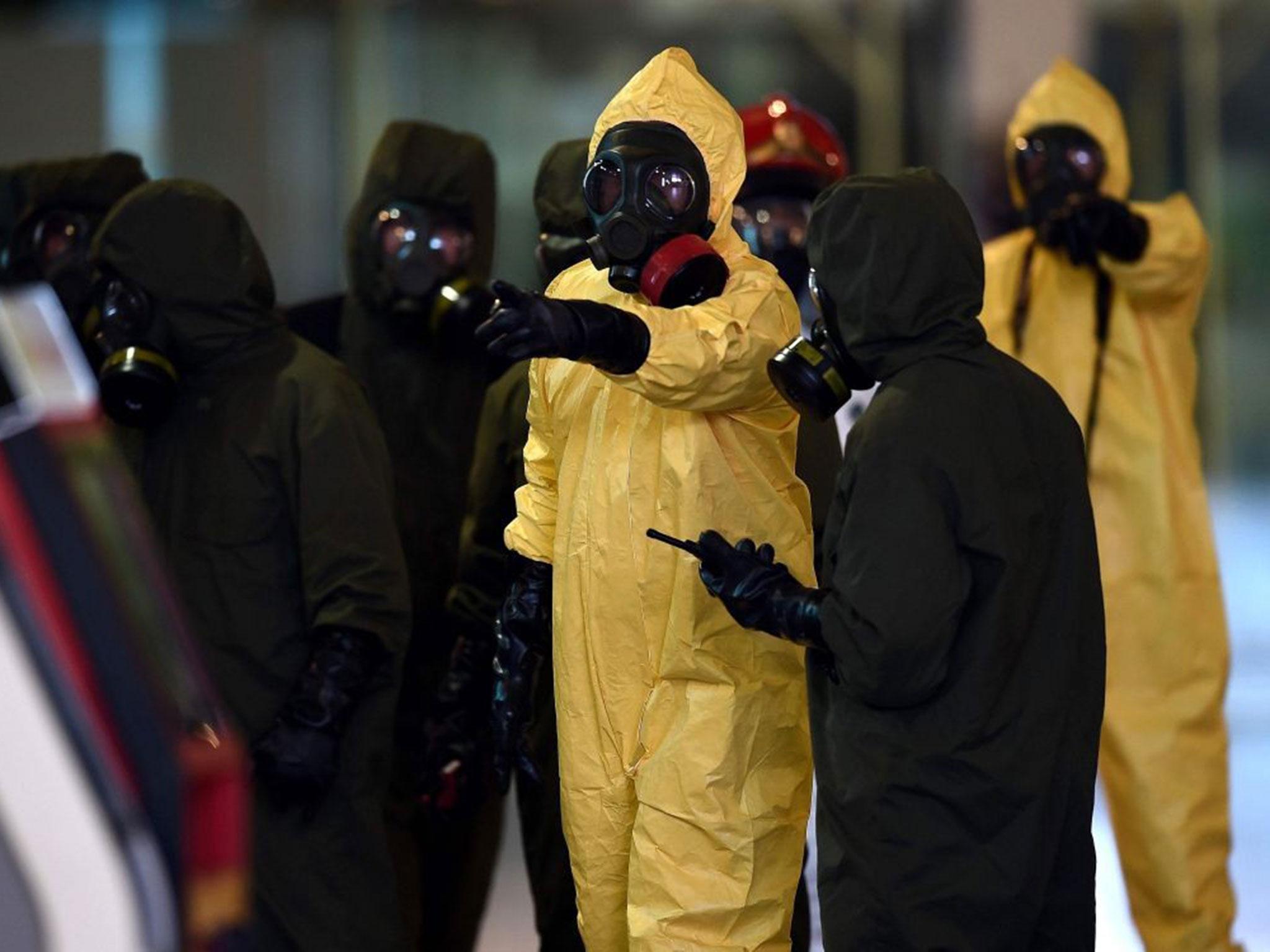Kim Jong-nam 'died within 15-20 minutes of exposure to deadly nerve agent VX'
VX only requires 10 milligrams to be absorbed into the system to be lethal

The dose of nerve agent given to North Korean ruler Kim Jong-un’s exiled half brother was so high that it killed him within 20 minutes and caused “very serious paralysis”, according to Malaysia’s health minister.
Kim Jong-nam died on 13 February at Kuala Lumpur’s airport in what Malaysian police say was a well-planned hit by two women who wiped a liquid on Mr Kim’s face. Police revealed on Friday that the banned chemical weapon VX nerve agent was used to kill Mr Kim, raising the stakes in the case.
Health minister Subramaniam Sathasivam said the dose of VX given to Mr Kim was so high that he showed symptoms within minutes. Mr Kim fainted at the airport clinic and died in the ambulance while en route to a hospital, he said.
“VX only requires 10 milligrams to be absorbed into the system to be lethal, so I presume that the amount of dose that went in is more than that,” he said. “The doses were so high and it did it so fast and all over the body, so it would have affected his heart, it would have affected his lungs, it would have affected everything.”
Asked how long it took for Mr Kim to die after he was attacked, Mr Subramaniam said: “I would think it was about, from the time of onset, from the time of application, 15-20 minutes.”
Malaysia hasn’t directly accused the North Korean government of being behind the attack, but officials have said four North Korean men provided two women with the poison to carry it out. The four men fled Malaysia on the same day as the killing, while the women – one from Indonesia and the other Vietnamese – were arrested.
Inside the daily life in North Korea
Show all 19Experts say the nerve agent used to kill Mr Kim was almost certainly produced in a sophisticated state weapons laboratory and is banned under an international treaty. But North Korea never signed the treaty, and has spent decades developing a complex chemical weapons programme.
Mr Kim was not an obvious political threat to his estranged half brother, Kim Jong-un, but he may have been seen as a potential rival in North Korea’s dynastic dictatorship, even though he had lived in exile for years.
North Korea has denied any role in the attack.
Earlier on Sunday, Mr Subramaniam said the state chemistry department’s finding of the VX toxin in Mr Kim’s bloodstream confirmed the hospital’s autopsy result that suggested a “chemical agent caused very serious paralysis” that led to death “in a very short period of time”. The VX agent can lead to death very quickly in high doses, he said.
He said the final autopsy report would be submitted to police soon.
Mr Subramaniam also said that there have been no reports of anyone else being affected by the toxin, but that medical workers who attended to Mr Kim would remain under observation for possible delayed effects.
Tens of thousands of passengers have passed through the airport since the apparent assassination was carried out. No areas were cordoned off and protective measures were not taken.
Early on Sunday, more than a dozen officers in protective gear swept the budget terminal where Mr Kim was attacked and said they found no traces of VX.
Abdul Samah Mat, the police official leading the investigation, said the terminal was “free from any form of contamination of hazardous material” and declared it a “safe zone” after a two-hour sweep.
He also said a substance that was seized from a condo on the outskirts of Kuala Lumpur rented by the four North Korean suspects, which was raided by police last week, was still being tested for traces of any chemicals.
Mr Samah said the Indonesian woman who was arrested, Siti Aisyah, vomited in a taxi on the way from the airport after the attack but is fine now. He said that more tests were needed to determine if the two arrested suspects were given antidotes so the nerve agent wouldn’t kill them.
An antidote, atropine, can be injected after exposure and is carried by medics in war zones where weapons of mass destruction are suspected to be used.
On Saturday, representatives from the Indonesian and Vietnamese embassies met with the two arrested women, who both said they thought they were part of a prank show. Ms Aisyah said she was paid the equivalent of $90, according to Andriano Erwin, Indonesia’s deputy ambassador to Malaysia.
AP
Subscribe to Independent Premium to bookmark this article
Want to bookmark your favourite articles and stories to read or reference later? Start your Independent Premium subscription today.

Join our commenting forum
Join thought-provoking conversations, follow other Independent readers and see their replies